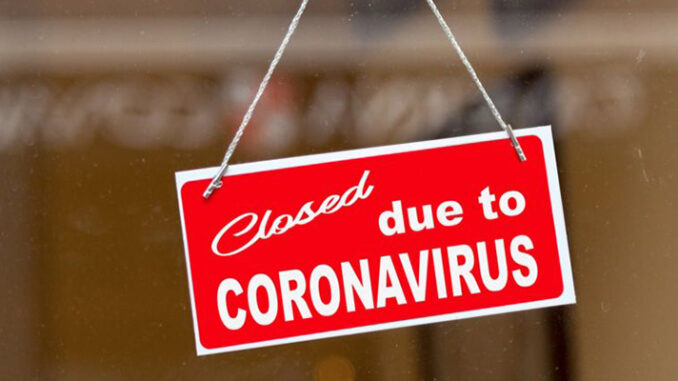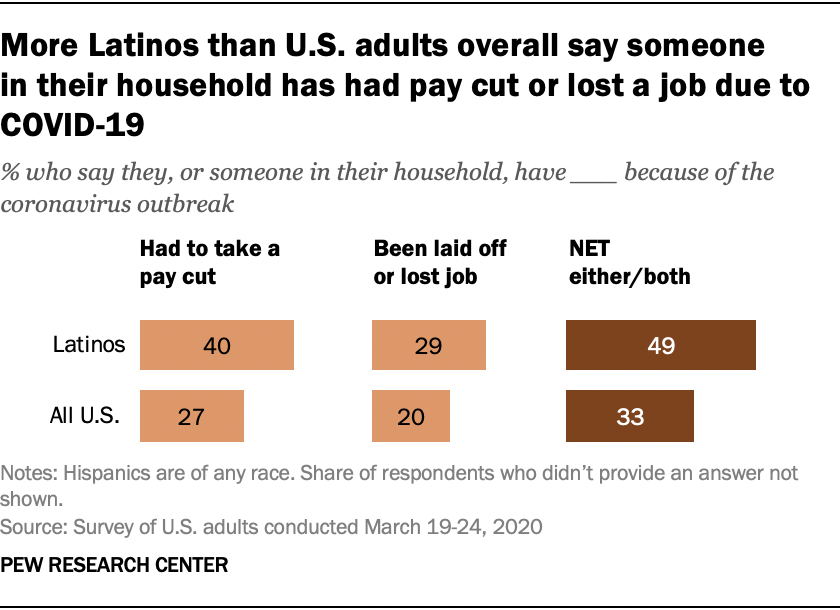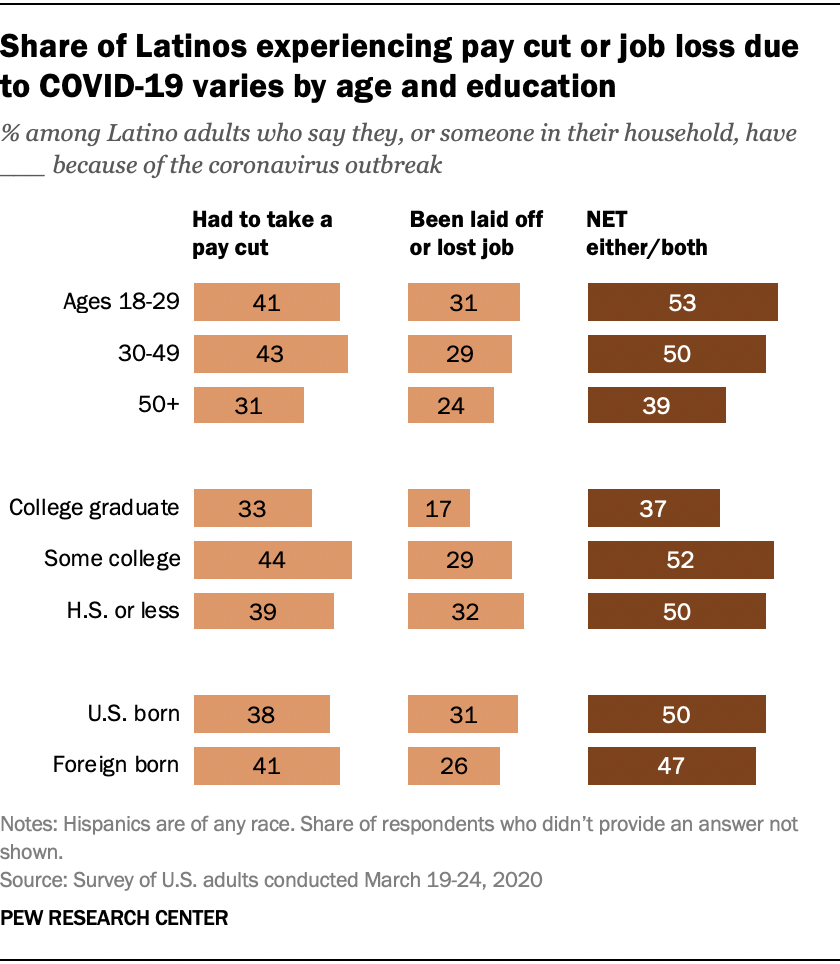
by , and
 Hispanics are more likely than Americans overall to say they or someone in their household has experienced a pay cut or lost their job because of the coronavirus outbreak, according to a Pew Research Center survey conducted March 19-24.
Hispanics are more likely than Americans overall to say they or someone in their household has experienced a pay cut or lost their job because of the coronavirus outbreak, according to a Pew Research Center survey conducted March 19-24.
Around half (49%) of Hispanics say they or someone in their household has taken a pay cut or lost a job – or both – because of the COVID-19 outbreak, compared with 33% of all U.S. adults. Among both Hispanics and the wider public, more people say someone has experienced a pay cut or a reduction in work hours than say someone was laid off or lost a job (40% vs. 29% among Hispanics, 27% vs. 20% among all Americans). A recent Center analysis found about 8 million Hispanic workers were employed in restaurants, hotels and other service-sector positions that are at higher risk of job loss.
Americans filed a record 6.6 million unemployment claims during the week ending March 28, which came after a record 3.3 million claims were filed the week before. The Hispanic unemployment rate in March stood at 6.0%, up from 4.4% in February. The current rate is likely much higher because the monthly figure is based on data from the second week of March, before the economic impact of the outbreak became widespread. Overall unemployment in the United States stood at 4.4% in March.
The U.S. now has the most reported coronavirus cases of any country. Most states have closed nonessential businesses and many have issued stay-at-home orders to their residents. More than four-in-ten Americans (44%), including 47% of Hispanics, say the outbreak has changed their personal life in a major way.
Latinos are concerned about the outbreak’s broader economic impact on the nation. The vast majority (90%) say the outbreak is a major threat to the U.S. economy. In addition, the late March survey finds a significant share (42%) saying the coronavirus outbreak will cause a recession, while 16% say it will cause a depression. Another 40% say it will cause a slowdown of the economy but not a recession.
For several weeks, many Hispanics have viewed the coronavirus outbreak as a major threat to their personal financial situation. The share saying this reached 68% in the Center’s latest survey (March 19-24), up from 50% who said so less than two weeks earlier (March 10-16). In the period between the two surveys, Congress debated a roughly $2 trillion emergency spending bill that included $1,200 government payments to individuals, an expansion of unemployment benefits and the option to postpone student loan payments. President Donald Trump signed the bill shortly after the latest survey was completed.
 Hispanics as a group are younger and have lower levels of educational attainment than Americans overall. Young people and those with lower levels of education report having been some of the hardest hit by pay cuts and layoffs, among both the general public and Hispanics.
Hispanics as a group are younger and have lower levels of educational attainment than Americans overall. Young people and those with lower levels of education report having been some of the hardest hit by pay cuts and layoffs, among both the general public and Hispanics.
About half (53%) of Latinos ages 18 to 29 and a similar share of those ages 30 to 49 (50%) say they or someone in their household has lost a job or had their pay cut because of the coronavirus outbreak. In contrast, 39% of Latinos 50 and older say the same.
Meanwhile, about half of Latinos without a college degree – 50% with a high school degree or less and 52% with some college experience – say they or someone in their household has lost a job or had their pay cut. By comparison, a smaller share of Latinos with a college degree (37%) say they have experienced one of these events. Even so, across all education levels, higher shares of Latinos than of the general public say someone in their household has lost their job, taken a pay cut or both because of the COVID-19 outbreak.
While a substantial share of Hispanics are foreign born, these adults report similar experiences with pay cuts and layoffs as Hispanics born in the U.S.
How we did this
To learn how the U.S. public, including Hispanics, is responding to the coronavirus outbreak, we surveyed 11,537 adults from March 19-24, 2020. Everyone who took part is a member of Pew Research Center’s American Trends Panel (ATP), an online survey panel that is recruited through national, random sampling of residential addresses. This way nearly all U.S. adults have a chance of selection. The survey is weighted to be representative of the U.S. adult population by gender, race, ethnicity, partisan affiliation, education and other categories. Read more about the ATP’s methodology.
Here are the questions used for this report, along with responses, and its methodology.
